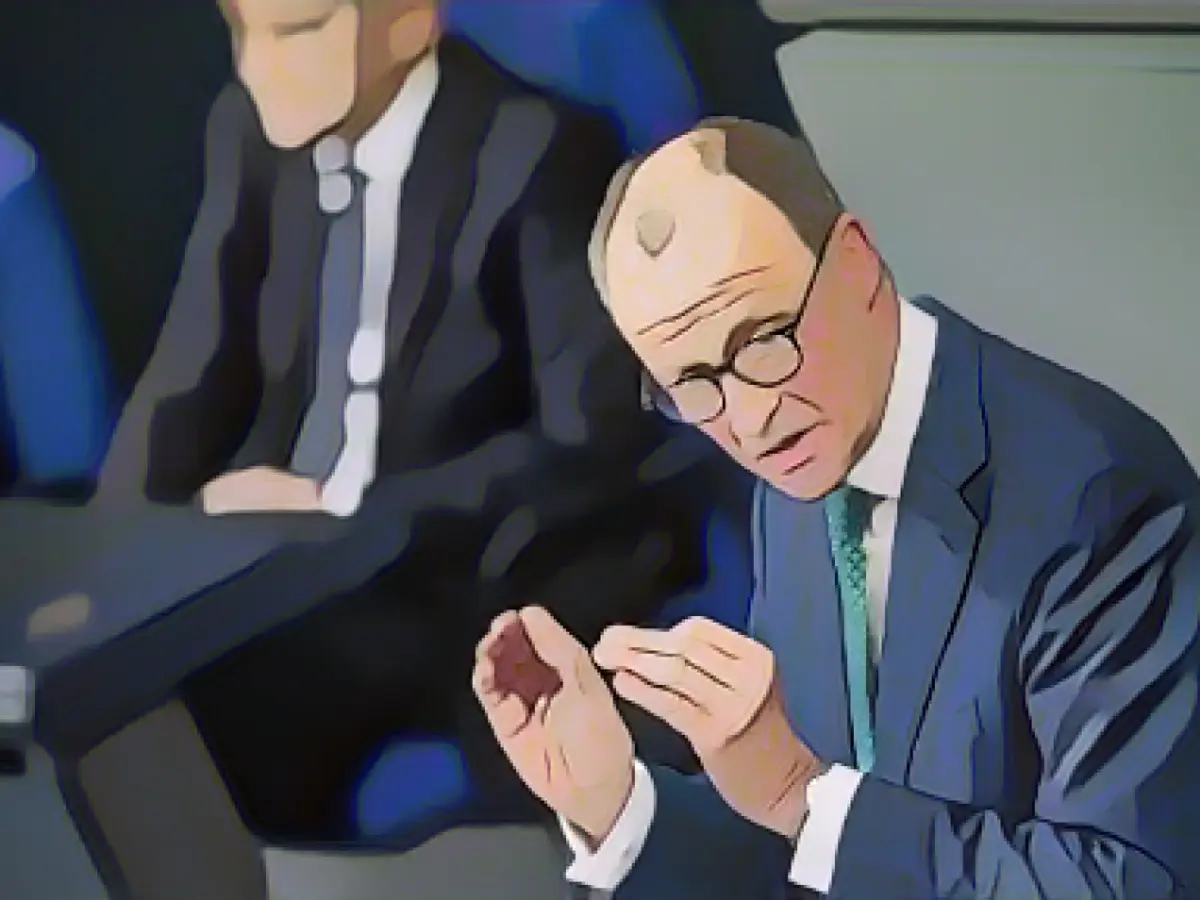Budget Dispute Pushes Merz to Speed Up Government Replacement
CDU leader Friedrich Merz and CSU head Markus Söder have agreed to oust the current traffic light coalition government as soon as possible, citing the ongoing budget dispute between the coalition partners. The push for a swift transition to a CDU/CSU-led government comes in response to the financial disagreements between the coalition's constituent parties.
If the coalition collapses, an early Bundestag election on June 9, coinciding with the European elections, could be a possibility. However, several roadblocks hinder an early election, such as Chancellor Olaf Scholz (SPD) having to face a vote of confidence in parliament, a highly improbable result given the current state of affairs.
Scholz's SPD faces mathematically challenging predicaments in forming a coalition with the CDU and CSU or revisiting a grand coalition with the Greens or the SPD's traditional CDU/CSU partner, the FDP, due to their dwindling popularity.
European elections often serve as "think-tank elections," and there are concerns that the far-right AfD may surpass expectations in 2024. Should the conservatives seize the opportunity, they plan to expand the Adenauerhaus to accommodate a parallel campaign for the Bundestag and European elections.
Merz has sidestepped the question of whether the CDU can launch a federal campaign by June, acknowledging that the feat would be daunting but expressing his intentions to prepare accordingly.
Merz's Skepticism Towards New Coalition with SPD
Merz has also voiced skepticism towards a potential reformation of the grand coalition with the SPD. He pointed out that the SPD's falling popularity may hinder such a coalition, currently polling at 14%. Merz clarified that no coalition agreements have been drafted prior to the election, but his party is not relocating to a campaign-oriented stance.
In the context of Söder's proposal to consider a new election on June 9, 2024, Merz emphasized the need for a strong CDU/CSU post-election to maintain strategic options in the event of various coalition possibilities. He noted that the Hesse election results, which delivered a strong showing for the CDU, could serve as a benchmark for future federal elections.
Merz's stance towards the Greens remains ambivalent, as he acknowledges human and emotional preferences for the party but encourages an objective assessment of their policies. In recollecting their co-governance with the Greens in North Rhine-Westphalia, Merz commended their flexibility and adaptability while expressing concern about the FDP's current electoral position.
Challenges and Opportunities
Germany's political landscape is fraught with challenges as Merz and Söder pursue their objectives to oust the traffic light coalition and realign political power. Various factors play a role in the potential for an early election, and overcoming these hurdles necessitates cooperative efforts from the various parties involved.
Sources:
- Zekt, M. (2023, February 4). "Friedrich Merz: Mehr strategic Optionen nach der Bundestagswahl erforderlich." Spiegel Online,
- Haldenwalde, L. (2023, February 1). "CDU-Chef Friedrich Merz: Neue Regierung sollte bald satt machen." TAZ,
- Expanding horizon: New constitution for more flexible coalition options, The Local DE,
- Gutes und Böses im Wahlprogramm für den Bundestagswahlkampf, DW,
- Agenda 2023: Die CDU/CSU umkreist eine Präventivregierung, Der Spiegel,
Enrichment data:
The budget dispute between the traffic light coalition in Berlin has led CDU leader Friedrich Merz to call for a swift transition to a CDU/CSU-led government. The contentious issue was the 2025 budget, with Olaf Scholz, the chancellor, and the FDP leader, Christian Lindner, disagreeing about temporarily derogating from the debt brake mechanism (Schuldenbremse) to address financial imbalances.
Merz and the conservative CDU/CSU bloc, their preferred partners in government, suffered setbacks in the 2021 Hesse state election. The Green Party, a long-standing coalition partner in North Rhine-Westphalia, emerged as the third-largest party in that election.
In January 2023, Merz expressed his skepticism about forming a new grand coalition with the SPD and ruled out any cooperation with the far-right AfD. Merz also voiced concerns about immigration and asylum policies, emphasizing the necessity of controlling state borders and tightening detention for deportation. The highly controversial plan to abolish Bürgergeld, the unemployment benefit, was also advocated.








